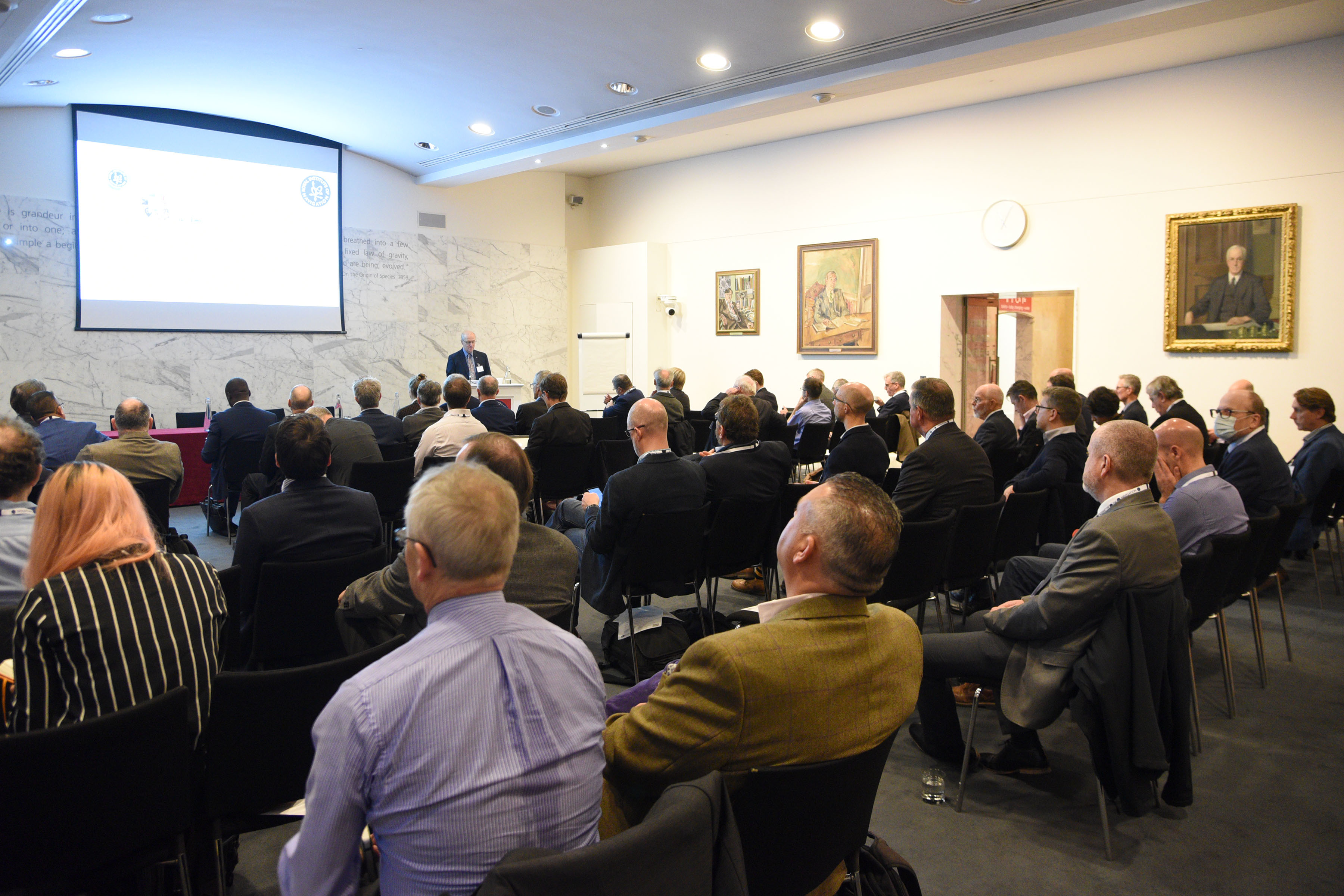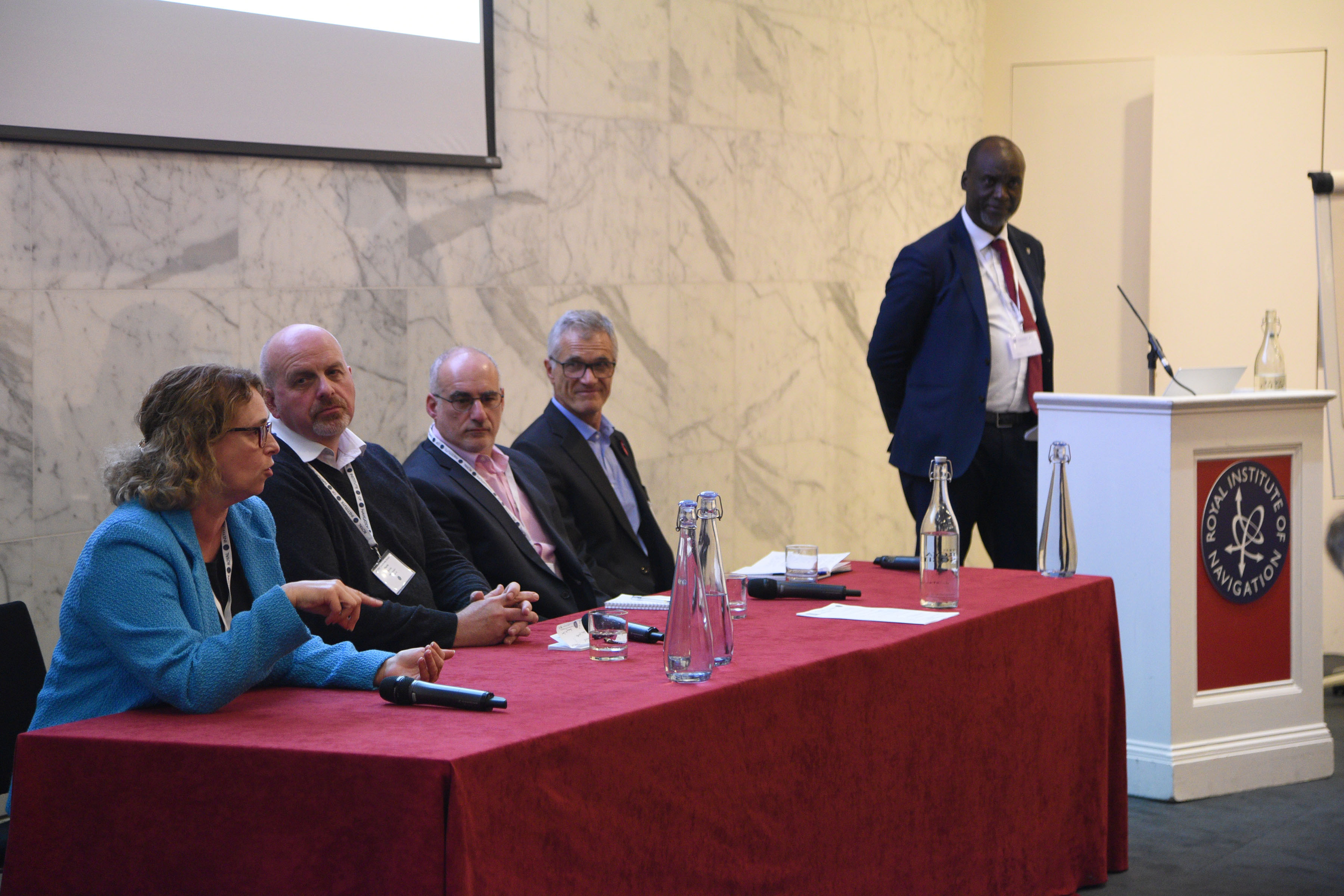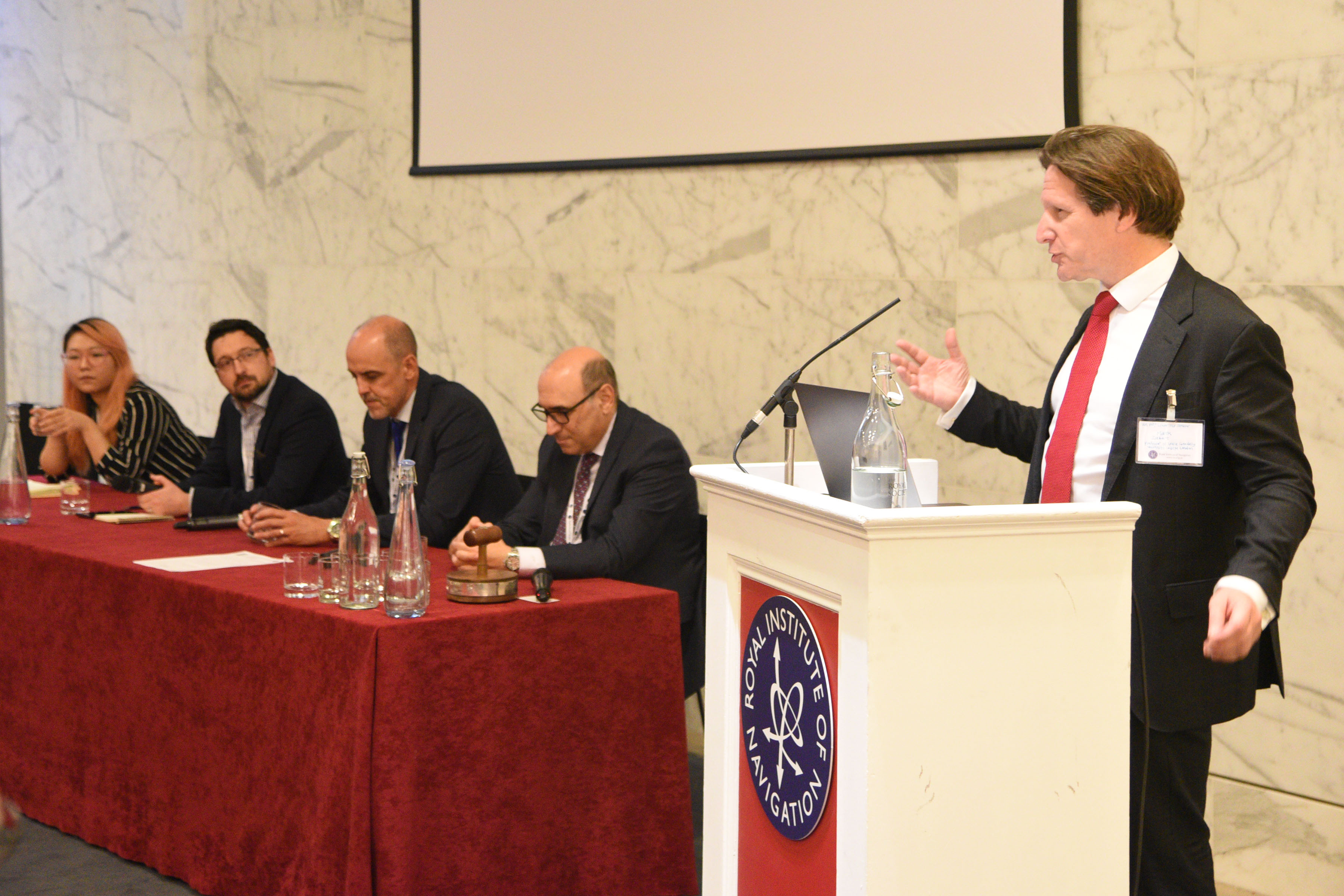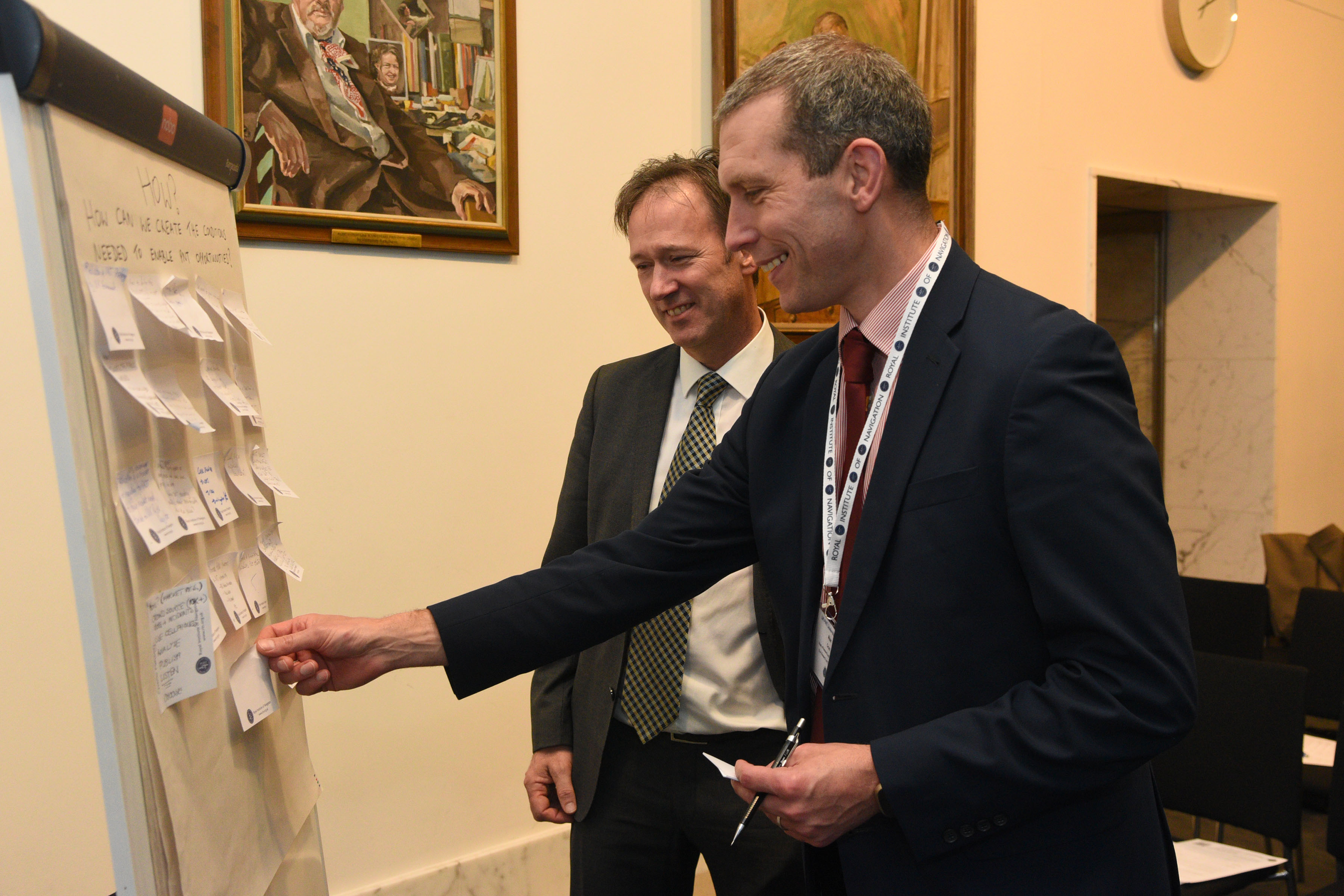In our inaugural event on the 1st November we hosted around 100 senior Positioning, Navigation and Timing (PNT) leaders from across industry, academia and government at the Royal Society to discuss where PNT is in the UK, where the group thought it needed to be and how to get there. The meeting was held under Chatham House rules.

A primary keynote was given keynote on the economic benefits of resilient PNT to the UK. This reflected a hypothesis that ‘the UK can generate value and sustainable leadership from investing in resilient PNT, benefiting government, academia, industry and, ultimately, individuals.’ The London Economics concept paper that this is based on, which can be downloaded HERE, notes that the UK has significant economic value at risk to even a temporary outage of GNSS, with the road transport, emergency, and justice services, and maritime found to be most precariously positioned.
The London Economics paper continues to assess that major critical infrastructure sectors across the economy remain insufficiently prepared to face the consequences of outages or disruption to satellite-derived time and position, and that backup systems mitigate against the economic value risk.
A recommendation was made that additional work is needed to identify and rank mitigation strategies in order of priority based on strategic and economic factors, that these need to be funded to prove the concepts and that the sector itself should organise itself to present a coherent face to global partners and customers.
This echoed the introductory talks which discussed success being delivered through three functions; [having the right] infrastructure, [putting in place the right] leadership and governance, and [having a pipeline of] skills. The latter being identified through the day as a red flag for all concerned. Examples of open PNT roles were given by delegates, validating the point.
The main focus of the day was two excellent panel sessions, the first focussing on UK strengths, the second being concerned with examples of success but where there is room for improvement. The organisers were aiming for interactive discussion, and this was achieved, with many points being made by the wide range of delegates.


Some of the key messages and points made include:
• the ability to monetise PNT services is a challenge when competing against “free”1 with GPS.
• The role, if any, for better use of legislation, regulation, and standards in resilient PNT – this requires systems thinking and a market focus, moving away from silos that sometimes we fall into.
• The afternoon panel discussed the important point of careers and heard from all panellists about the need to create skills and career pathways from academia [including further education, not just universities] into industry and then structure for CPD.
• Overall, a strong call for co-ordinated action, led by government, on skills to have a greater focus that has been given thus far. It was recognised that individuals will invest their own careers in sectors with high growth and consistent investment. A strong strategy and programme for PNT in the UK would provide impetus and confidence for investment across the ecosystem, arguably reducing government’s own commitment required as well as reducing risks for all stakeholders.
• There was a clear wish for collaboration, particularly on governance and skills. There was a recognition that a range of short, medium and longer term actions will be needed. There was a strong call for RIN to be more proactive, and support for RIN taking leading roles in these areas.
Where the group saw the role of Government was an urgency to announce a strategy and associated governance and programmes. Such leadership and structure itself would build confidence and create/enable the conditions for industrial growth. There were several specific examples cited where the current lack of clear decisions is having real impacts on business decisions, with investment and skills going elsewhere, including overseas. Government leadership and targeted initial investments in R&D and skills, possibly infrastructure too, with a well-targeted legislative approach, would build confidence. This, in turn, would lead to increased investment across the sector, and from individuals wanting to invest their careers in PNT.

There was some discussion on how to support and encourage Government towards strategy and programme announcements. The MoD was cited as a good example where high priority has been given to [resilient] PNT. The attendees also were briefed on US experiences and that a more visible public information campaign and a visible and high-profile champion for PNT in the UK could be helpful.
Overall, the key messages from the meeting are below

What therefore is the role of the RIN in PNT going forward?
The RIN is a learned society and as such is very well-placed addressing long term thinking, strategies and providing input to setting goals with Government. There was a call for the RIN to be the voice of PNT and Resilient PNT in the UK which means not only “helping Government walk backwards over the bridge” but in building the bridge in the first place! The call for RIN to take a proactive and leading role in this way received wide and universal support.
The PNT Advisory Group (PNTAG), a special interest group under the Technical Committee, was warmly welcomed as the place to coalesce the UK’s PNT thoughts and directions but on the condition that it does something and not becomes a YATS (Yet Another Talking Shop). To that end I, in my summing up showed the PNTAG’s plan of action:

The immediate task for the PNTAG is to update this workplan2 to reflect the outcomes from the event and the community input.
Next will be to act on the plan and show that the RIN can deliver on leadership, long term thinking, support our colleagues in Government and to provide advice/guidance to the sector. We agreed we will plan to hold a repeat event around the same time next year where we will track progress – holding ourselves to account! The enthusiasm in the room on the day certainly gave me confidence that the plan is achievable.
To summarise and to channel one of the speakers’ comments a little, the takeaway for me is that for PNT in the UK, we have all the ingredients of success and growth, but need the recipe and hunger to cook the meal.
Our job is to pull the recipe for resilient PNT together and create the hunger for its implementation.
I would like to end with a call offers to contribute to the various work streams – please do get in touch with me if you are able to support this work.
Andy Proctor, MA CEng, FRIN, FIET
Chair, RIN PNT Advisory Group
[1] I know implementing GNSS services is not strictly free, but GPS is free to access, which is what I mean.
[2] If any readers would like information on any of the workstreams, I would be pleased to receive questions. (andy.proctor@rethinkpnt.com)









